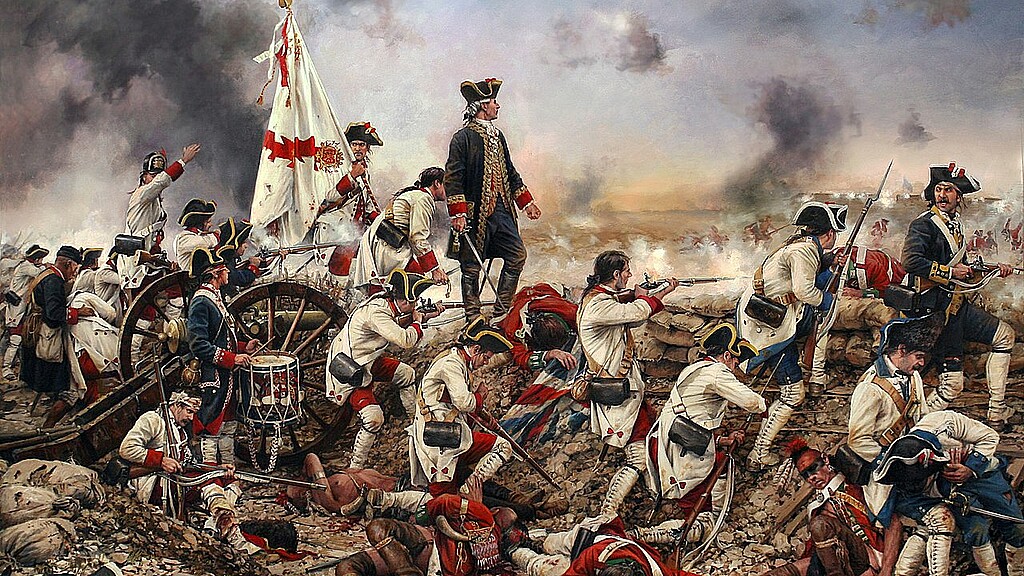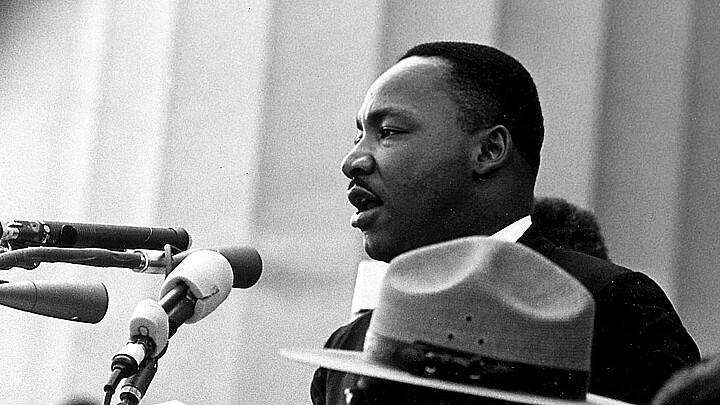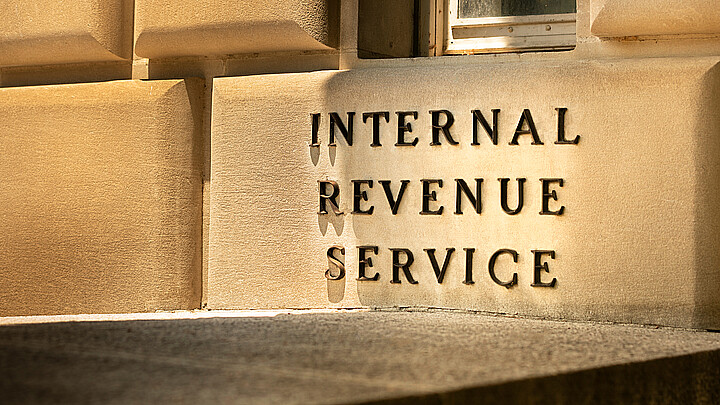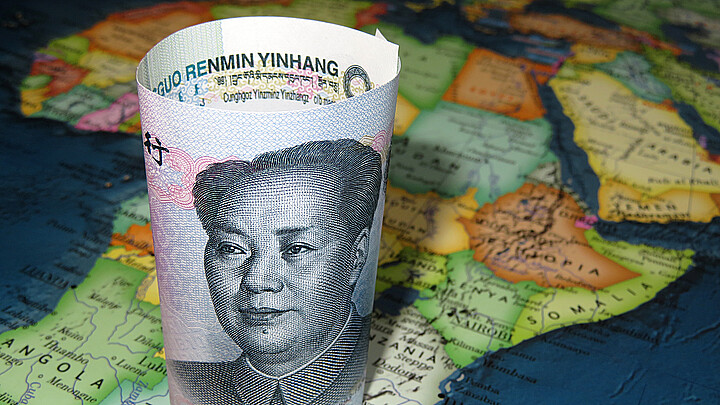Opinion & Reviews
Opinion: Spain offered the blood of her soldiers for the cause of American independence
Spain’s military captured West Florida from the British, closed off any offensive from the Redcoats at the Mississippi, and sent money, munitions and supplies to help the Continental Army

July 4, 2023 11:50am
Updated: December 11, 2023 1:18pm
While the Fourth of July has great significance for Americans as the day it declared independence from the British Crown, it also has a special meaning for Spain and those with Spanish ancestry.
It’s no secret that Hispanic roots in the United States of America run deep—so deep in fact, that its first city, Saint Augustine, Florida, was founded in 1565 by Spanish explorers.
But there’s so much more: Spain’s role in fighting alongside the American Continentals in the struggle for liberty.
Spain joined the fight for American independence in 1776
Although it is sometimes forgotten, our treasured history books reveal an incredible bond between the Spanish kingdom, its people and soldiers with Americans during its War of Independence.
From the beginning in 1776, the Spanish kingdom and her people sent money, munitions and supplies just to help the Continental Army.
The famous 1777 Battle of Saratoga in New York was fought solely with Spanish weapons and equipment, adding value to the entry of France into the war in 1778.
Soon, the three countries signed pacts to strengthen their alliance, and in 1779 Spain’s military closed off the Mississippi from the Redcoats, and in 1781 Gen. Bernardo de Gálvez captured West Florida from the British.
This means that when Americans celebrate her independence every Fourth of July, Spain and all her descendants also have a reason to celebrate: the Spanish-American centuries long alliance that continues even today.
The Spanish general who fought for American independence
In Washington, the heart of America’s capitol city, there is a statue of Gen. de Gálvez, which serves as “a reminder that Spain offered the blood of her soldiers for the cause of American independence.”
It was built in 1976 to celebrate the America’s bicentennial birthday. statue of Gen. Galvez.
Gen. Gálvez was so important to the American people that the port city of Galveston, Texas was named after him. Centuries later, he was declared an honorary citizen of the United States by way of Congressional resolution.
There are also statues of the great Spanish general in southern states and cities such as New Orleans.
Matías Galvez y Gallardo, the general’s father and governor of Guatemala, led troops from all over the Americas, and was supported by both New Granada (now Colombia) and Peru, which both sent weapons and money to Washington’s armed forces.
While the senior Gálvez gathered troops under his command in the Americas, he also created jobs in Central America and paid Honduran carpenters to build small ships needed by the U.S. Continental Navy.
Venezuela also played a historical role that memorialized the USA as a country.
While other countries and kingdoms refused to recognize America’s independence, the South American nation was the first to address a U.S. military officer “(to a General of) the United States of America.”
This letter was sent on behalf of Luis de Unzaga in a letter to Gen. Charles Lee and Patrick Henry in the summer of 1776. Though Unzaga was born in Malaga, Spain, he was in charge of Venezuela.
The Venezuelan gesture marked the first time the U.S. and its military commander were recognized as a nation with a general, not a group of rebels.
Unzaga was also the first to use the term “United States of America” in Spanish, and the move was so monumental, even Gen. George Washington himself read the letter.
Spain sent the U.S. weapons during the American Revolution
In regards to weapons, Spain sent the U.S. artillery through the Gardoqui (named after the first Spanish ambassador to the U.S.) through a Bilbao, Spain based shipping company.
In total the Spanish sent an estimated 30,000 muskets, 30,000 bayonets, 512,314 musket balls, 215 bronze cannons, 12,868 hand grenades, 30,000 uniforms, 4,000 tents and 300,000 pounds were sent.
Gunpowder with salt protection was also transported on the ships carrying the armaments to protect them from humidity, totaling 946,906 reais.
Spain donated money to the U.S. for its War of Independence
Another decisive turning point was the 1781 Battle of Yorktown.
Spain disbursed a sum of 1,650,000 silver pesos to pay Washington's continental troops. Though the French took more credit, the fleet of French ships that isolated the English troops were able to do so since Spanish ships stood guard at French ports in the Caribbean.
While there are many similar examples, one stands out.
One major donor was Saint Junipero Serra, missionary, priest and patron of California. Pope Francis called Serra “one of the founding fathers of the United States, a saintly example of the Church's universality, and special patron of the Hispanic people of the country.” Serra founded of many California cities such as Sacramento, San Francisco, Los Angeles and San Diego.
The California missions contributed between 20% and 25%, and toward which total Gov. Neve personally contributed 2,000 pesos, or half of his annual salary. Forts also contributed to Monterey, Santa Barbara, and San Diego, providing 833, 249, and 515 pesos, respectively.
As the war continued, Spain’s King Carlos III charged Californians taxes to help pay for America’s battles.
Even the indigenous population in Spanish territory participated. The war levy was two pesos per adult Spaniard (over 18 years old) and one peso per adult Native American.
We should never turn away from American or Spanish history
Today, Hispanics are the largest minority in the U.S. Instead of learning about history and how much there is in common, woke culture separates modern citizens from their roots.
Saint Junipero Serra´s statue has even been vandalized, beheaded and toppled down. There are currently public demands to remove it from the U.S. Capitol as well. To which Alejandro Bermudez, executive director of Catholic News Agency has replied:
“In a state that counts Hispanics as its largest ethnic group, California's elected leaders are about to banish the first and one of the only two Hispanics from Statuary Hall.”
In the name of “inclusivity” woke culture is, literally, excluding years of shared history among cultures, which is why truth is vital to unite and heal were division and hurt reign.
Once this healing happens, there will be much more to celebrate every July 4th.










